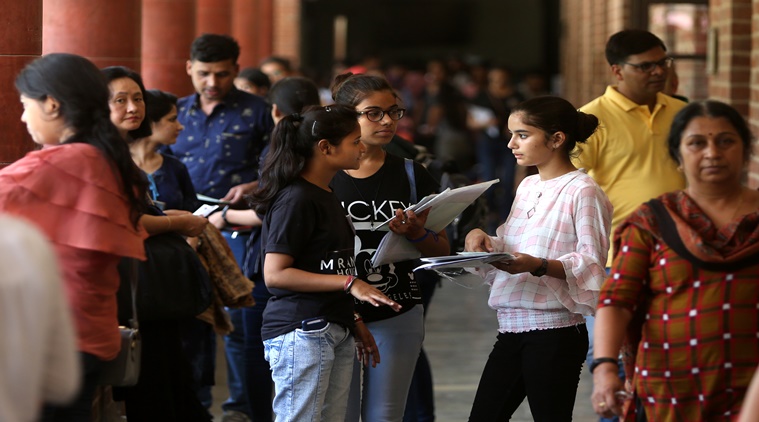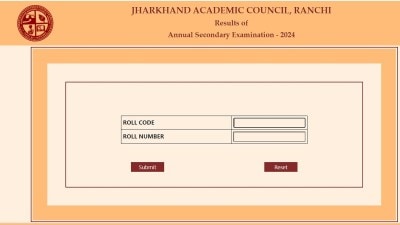- India
- International
Quarantined? Use the time to gauge aptitude and find the right course after Class 12
It is a good idea to apply to at least six colleges. The list should consist of two aspirational colleges, three colleges where you have a realistic chance of getting in and one backup college where you would surely get admission.
 Students during the admission for 2019 in Miranda college on Saturday. (Express Photo by Gajendra Yadav)
Students during the admission for 2019 in Miranda college on Saturday. (Express Photo by Gajendra Yadav)
— Written By Kamini Vidisha
Students who have been through a series of tests, including pre-boards, internals and a series of revisions are awaiting their last exam or results. Due to the ongoing coronavirus pandemic, the board exam results and subsequently admissions are falling behind schedule. Meanwhile, students can use this time to decide on one of the most important questions of their life — what path do they want to take in future? Which college, which course? Here is a guide to help narrow down your choices.
Picking the right course is not about one’s interest alone. It is a culmination of one’s interest, aptitude and the expected returns associated with that particular course choice.
Read| Colleges and courses in Delhi University where cut-off remains in 80s and below

Why do you want to study it?
The most important consideration when choosing your course is to ask yourself — what is it that you want to do each day of your adult life? To understand this, work on some of the points below:

— Are you looking for a career enhancement by extending your existing skills or aim to progress in existing work?
— Are you looking for a change in career path completely?
Read| Dental, veterinary or AYUSH courses: Options beyond MBBS on clearing NEET
— Consider prospective careers and employment opportunities.
— Discuss with colleagues or peers on which courses would be relevant for your career.
In video| What are your options, if you scored less
Take a reality check
Based on the requirements, narrow down on a list of colleges that you may want to apply to. It is time to match your expectations with the reality of you having a decent shot at those colleges. Some of the basic points to consider for the whole list of courses are:
— What are the prior education qualification qualifiers for the course?
— Minimum SAT, ACT, GMAT, GRE, TOEFL etc. scores needed for the course.
— Learn about the chances of getting scholarships and overall cost of the course.
— Pros and cons of part-time vs full-time course duration.
— Deadline of the application for admission.
— Learn about the visa procedures, if going abroad.
— Know about the placement requirements.
— It is best to talk to the current students or alumni to get an understanding of teaching quality, facilities etc.
Focus on course detail
Every subject/course has many different options, so it is good to know the most specific needs. For example, a lot of masters’ students get the option to complete the degree with or without the ‘thesis.’ Both scenarios have implications on the work load (in college) and employment potential. So, you need to be very careful. The ones with a thesis can help you sustain a career in research and related fields which are not otherwise available. Thus, choose a course wisely.
List of colleges
Make a final list of courses or colleges to apply. It is always better to plan in detail before applying. It is a good idea to apply to at least six colleges. In our experience – the list should consist of two aspirational colleges, three colleges where you have a realistic chance of getting in and one backup college where you would surely get admission.
In video| Course versus college: What should be your pick
We know that applying to colleges is expensive. If you are willing, you can apply to 10 colleges with a split of three aspirational colleges, five realistic and two backups.
Never too late
Even if after admission you realise that it is not your dream course or college, you can always change your mind. One has options of switching, choosing a course at master’s or master’s level entrance exams as well as internships after graduation too.
This is an important decision and in case you are not sure about your choice, discuss with the student counsellor on campus. You may talk to other people in your network. Reach out; people generally try to help. Try and see what other options are there which are more aligned with your needs. Remember, the course needs to make sense for you – keep the excitement alive, and you will succeed.
— The author is co-founder, ACadru
Apr 19: Latest News
- 01
- 02
- 03
- 04
- 05






































